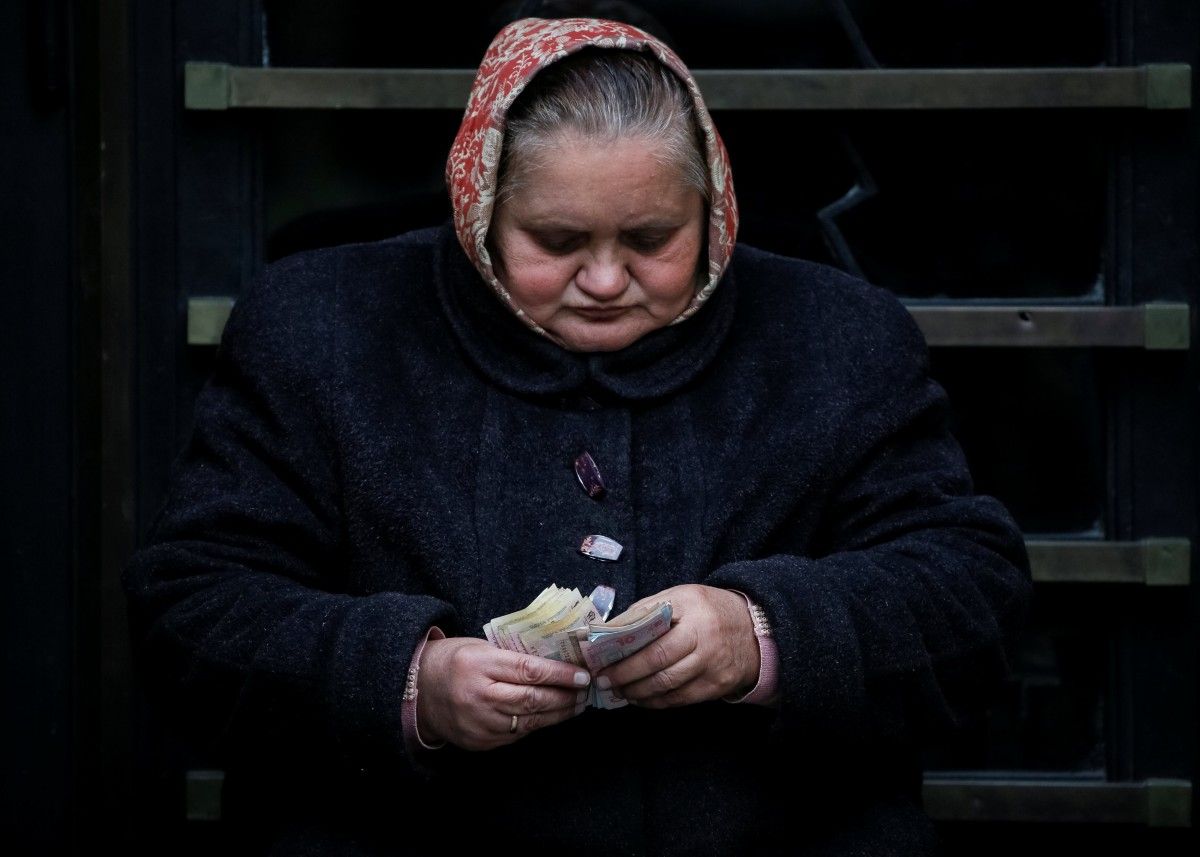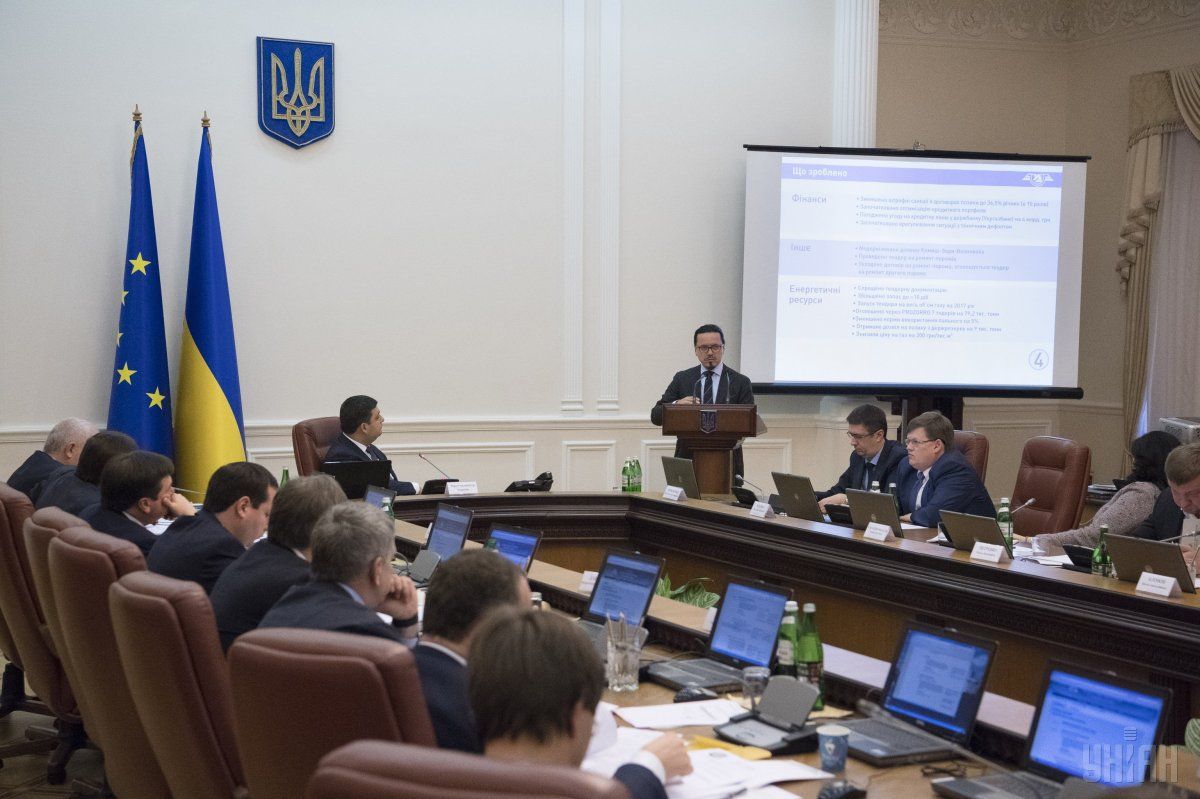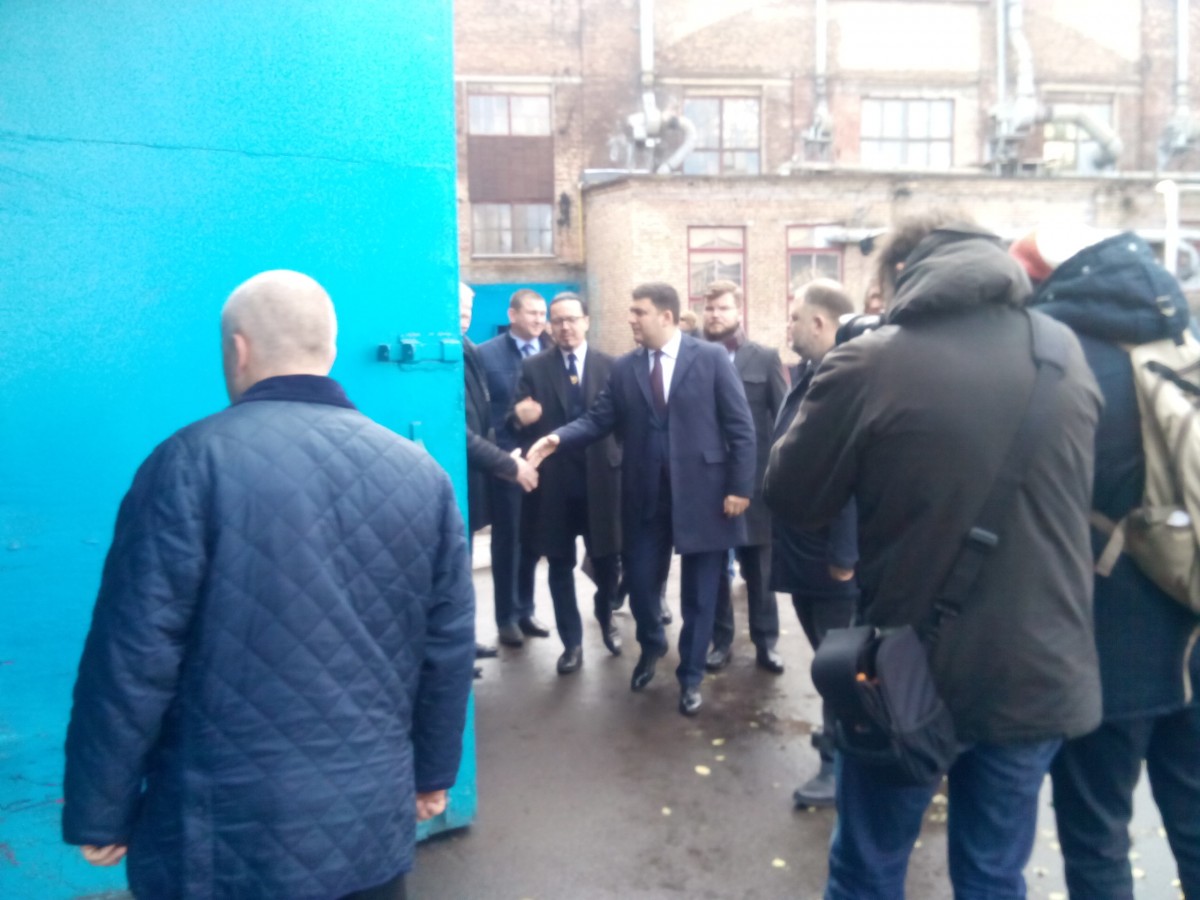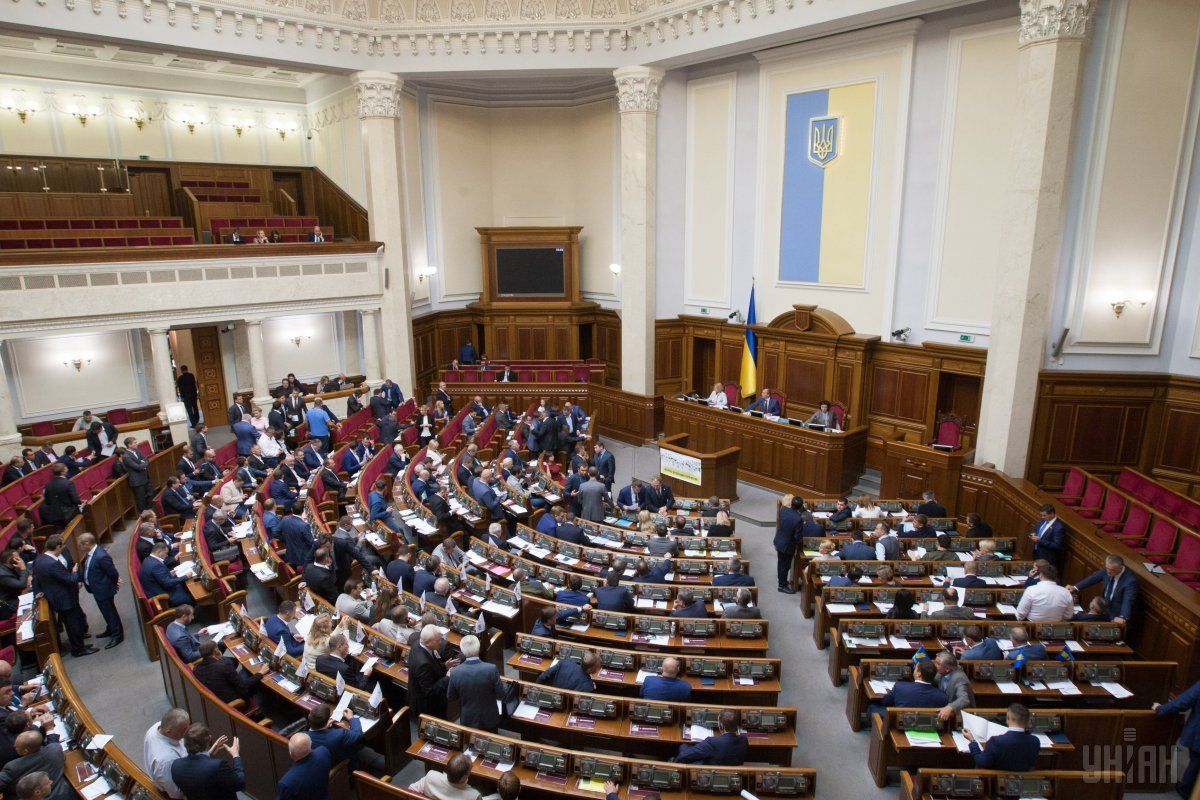
Week’s balance: budget bargaining, horror stories of minimum wage, and mafia pulled away from Ukrzaliznytsia
The Ukrainian Cabinet has tabled a draft budget for 2017 for its second parliament reading, with a promised increase in the minimum wage; Prime Minister Groysman showed willingness to destroy any mafia in Ukrzaliznytsia, while the IMF mission arrived in Ukraine once again – these are the main economic news of the past week.
Last week, another step was taken toward the timely adoption of the country’s main financial document, the state budget for 2017. The Cabinet at its extraordinary meeting late Thursday approved the amended draft budget and forwarded it to the Verkhovna Rada, which is to consider it in the second reading.
Prime Minister Volodymyr Groysman did not rule out more changes to come in the process of the Rada consideration. The government admits that the aid to agribusinesses can be doubled, up to UAH 10 billion. Also, the Cabinet does not exclude the likelihood of further re-disbursement of funds. However, the main macroeconomic indicators remained unchanged. GDP growth in 2017 will amount to 3-4%, inflation at 8.1%, unemployment rate at 8.6%, the forecast level of debt at 66.8% of GDP, the hryvnia exchange rate at UAH 27.2 per dollar.
"The budget, which is now prepared for the second reading, is a budget that is balanced and realistic," Groysman said.
Now the budget bill is in the hands of the MPs and no one knows when they finally consider it. However, the government expects this will happen before the end of November. If that happens, for the first time over the past few years, the country will see its main financial document before the New Year’s holidays.
However, much more efforts are yet to make. Traditionally, there is an ongoing bargaining for the budget pie. For example, head of Samopomich faction Mr Berezyuk publicly stated that in the budget 2017 it is necessary to increase the minimum pensions and finance equipping customs offices with registers of transactions, which, in his opinion, will bring the additional tens of billions of hryvnia to the state coffers.
In fact, everything is simple - the faction will vote for the budget if the government helps Lviv Mayor Sadoviy [the party founder] solve the problem with the city’s overfilled garbage sites, as garbage trucks from Lviv are trying to find new dumping spots across Ukraine.
It is clear that it will be very difficult for the government to contain the rush of the MPs and reject their "multibillion wishlists". The second half of November will be incredibly complicated to Cabinet officials.
Fighting poverty

A key change in the budget-2017 was a twofold increase in the minimum wage for the population to UAH 3,200 from January 1. The Government intends to equalize the rate of the minimum wage to the actual subsistence level. Groysman reiterates that this decision will bring the Ukrainian economy out of the shadows and become an effective mechanism in the fight against poverty.
"This is a joint solution – of the president, the government, and the coalition. We have worked on this issue for months. And we have found, both through de-shadowing and honest allocation of budget funds, how to reach the figure of UAH 3,200. This decision is fair and real. This is the first step to combatting poverty," said the head of government.
At present, about 30% of Ukrainian workers are paid up to UAH 2,000. The decision of the Cabinet to raise the minimum wage is aimed specifically at this category of citizens. According to the Minister for Social Policy, Andriy Reva, this will provide for the increase in wages in the public sector by an average of 50% in 2017. Meanwhile, the government wants to unbind the wages of judges, prosecutors and certain officials from a "minimum wage indicator".
"From January 1, due to the increase in the minimum wage, the salary of the judge, if we don’t unbind it, will increase by UAH 16,000. That is, the poorest will get UAH 1,600, while the judge will get an additional UAH 16,000. Therefore, we must stop the practice of using the minimum wage [indicator] in determining the salary schemes for certain jobs, in particular, the judges, the NABU, the prosecutors, the Accounting Chamber, civil servants, the State Bureau of Investigation, and other," said Reva.
Almost simultaneously with the loud statements on the intention to increase the minimum wage, the deputies put a halt until better times on their recent decision to raise their own salaries up to UAH 40,000 [approximately $1,500] a month. They explained the move with the fact that, despite the "importance and necessity" of such a step, there is “bad timing” for raising their salaries. Perhaps, this decision was partly influenced by the recent publishing of electronic declarations of assets, reflecting the gargantuan wealth of Ukrainian civil servants, but the fact remains - they felt that it was more important to better raise the salaries of those in real need.
All members of the Cabinet of Ministers unanimously assured the public that raising the minimum wages will not lead to inflationary spikes or other negative effects on the economy. On the contrary, they said it would become the economy driver. The next step will be "modernizing" pensions.
Meanwhile, the main institution responsible for money printing -- the National Bank -- is not so sure of the prime minister’s optimistic forecasts, calling the current situation uncertain. In its inflation report for October, the regulator said it had not yet evaluated the impact of raising the minimum wage on the price level.
Balczun report

For the first time since his appointment, Ukrzaliznytsia CEO Wojciech Balczun was summoned to the government meeting to report / Photo from UNIAN
For the first time since his appointment, Ukrzaliznytsia CEO Wojciech Balczun was summoned to the government meeting, where he had to answer unpleasant questions regarding dragging reform of the country's largest state-owned company.
It is worth noting that there was nothing surprising in the government’s will to hear Balczun report. Firstly, on the eve of the meeting, Minister of Infrastructure Volodymyr Omelyan in his comments to the media made it clear that he was not too pleased with the Polish team. Secondly, the industrial and agricultural enterprises are literally crying out for new railcars. Ukrzaliznytsia disrupts delivery terms, which results in significant financial losses.
"The situation is extremely critical. There are many complaints from the upscale agri businesses… Companies incur losses for under-loading of sea ports capacities," Minister of Agrarian Policy and Food Taras Kutoviy said at a government meeting.
In turn, Balczun tried to explain the drawbacks with the fact that his initiatives to reform the company were being sabotaged at all levels. For this reason, he said he needed more time to ensure that more people noticed fruits of his team’s work.
"We took over Ukrzaliznytsya when it was in a very poor condition. There are a lot of pathologies, combatting which requires a lot of time and courage. That’s because the fight against sabotage is no easy task," Balczun said.
Following the Pole’s report, PM Groysman declared his readiness to "destroy any mafia" that tries to influence the activity of the Ukrainian Railways. For Ukrzaliznytsia to become more transparent, the prime minister issued instructions to quickly select and appoint a new professional Supervisory Board since the current composition includes officials unable to ensure effectiveness. The prime minister decided to give Balczun another chance, pledging to provide political support in the implementation of key reforms.
And the very next day after the meeting, Groysman visited the Darnytskiy Car Repair Plant, located next to Ukraine's largest railway junction.
“Darnytskyi plant in the next year will produce at least 800 railcars and repair another several thousand. This means that there will be jobs. You have quite a competitive product in terms of quality and twice cheaper than that produced by foreign counterparts. Moreover, these cars are 100% Ukraine-manufactured," the head of government said optimistically.

Rada’s positive steps
After staggering declarations of assets, the MPs thought they should better show some love toward the people by adopting a number of really important laws. In particular, the Rada extended the moratorium on scheduled inspections of small and medium businesses up to December 31, 2017. According to the authors of the bill, this will reduce the pressure on businesses by the regulatory authorities. However, public institutions whose work does not affect the SMBs do not fall under the moratorium. It is about the National Energy and Utility Regulation Commission, the National Commission on Securities and Stock Market, the NBU, and the Antimonopoly Committee.
Also, the Rada adopted the law, providing for the establishment of an open unified electronic database of government inspections of businesses and limiting the number of planned inspections to just one per year.
Another important initiative simplifies the export of services for the development of Ukrainian IT-industry and freelancers market. The document abolishes mandatory conclusion of foreign economic contracts in writing, allowing to make online deals through the acceptance of a public offer, electronic messaging, or through sending an invoice. Deputies emphasized that this innovation removes the barriers to attracting to Ukraine currency earnings by the exporters of services.

The deputies also dealt with the energy industry last week. The Verkhovna Rada has supported in the second reading the law, which labels the energy generated by heat pumps to the alternative energy in case its annual output exceeds the energy volumes needed to feed these pumps. Deputies noted that this provision complies with the European standards.
Also, MPs voted for the adoption of the law concerning debt restructuring of district heating and heat-generating enterprises. Thus, the Parliament has reduced the debt of the municipal utility companies for gas and electricity consumed.
Growth forecast
Another important news of the last week is that the mission of Kyiv’s key creditor, the International Monetary Fund, has started its work in Ukraine. Details on this subject will be published no earlier than next week.
It is noteworthy that immediately upon arrival, the auditors set off for a meeting with NBU Governor Valeria Gontareva and her Deputies - Roman Borysenko, Kateryna Rozhkova, and Oleh Churiy.
On the same day, the IMF mission held its first meeting with Minister for Social Policy Andriy Reva, trying to find out, at what cost the government plans to double the minimum wage, and the deficit of the Pension Fund will be eliminated.
Just a day earlier, the IMF published its forecast regarding the Ukrainian economy for 2017. The IMF predicts a 2.5% growth with inflation at 8.5% y-o-y. The Fund has retained its GDP growth forecast for 2016 at 1.5% with inflation at 13.5% y-o-y.
In addition, the Fund expects Ukraine's export growth in 2017 at at least 3.6% of GDP with a decrease in the external debt down to 136.3% of GDP.
Nadia Burbela (UNIAN)

